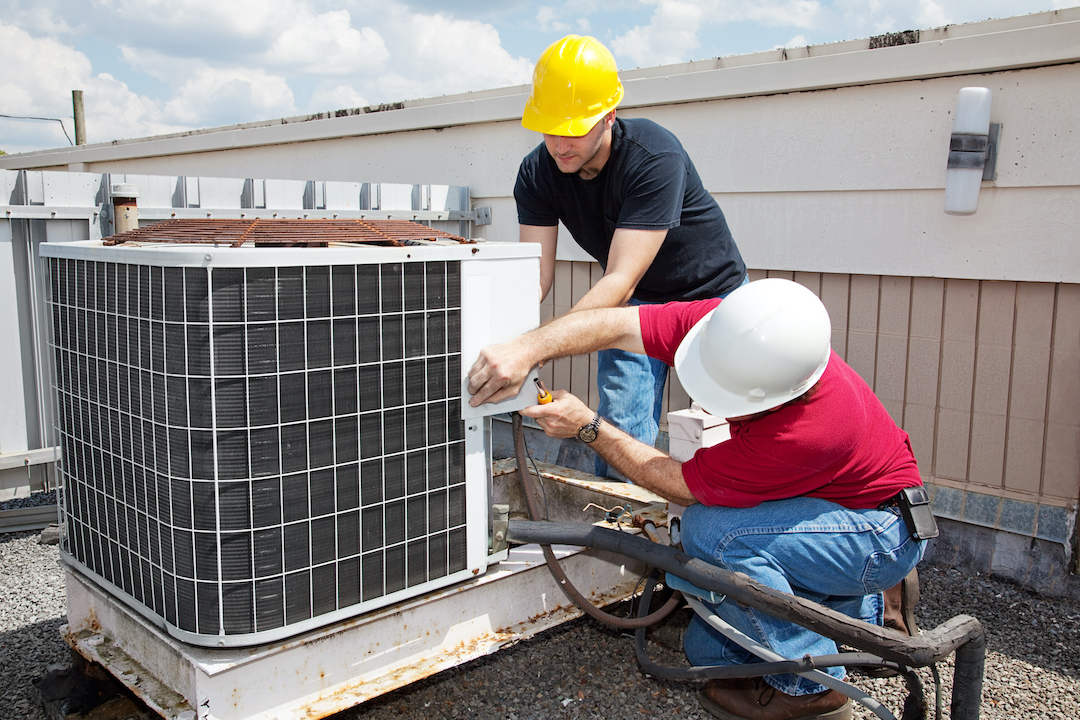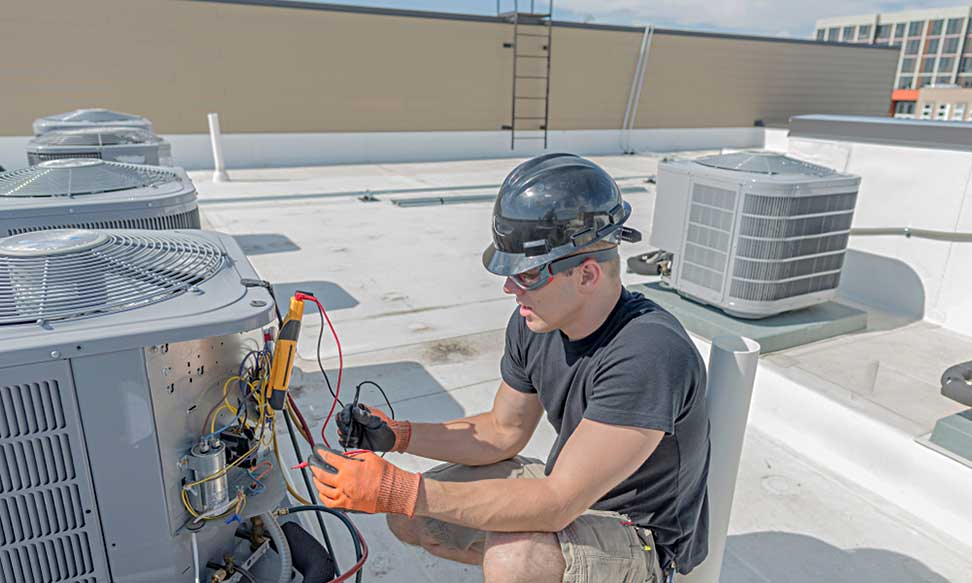Breaking Down the ROI on furnace replacement
Breaking Down the ROI on furnace replacement
Blog Article
Choosing Between a Heatpump and Heater: Key Factors To Consider for Your HVAC Needs
When evaluating home heating alternatives for HVAC requires, the decision between a heatpump and a heating system can be complex. Each system supplies distinctive benefits tailored to particular climates and energy effectiveness objectives. Comprehending these distinctions is crucial for making an informed selection. Secret factors such as setup costs and ecological effect better make complex the choice process. Which choice really straightens with one's comfort and sustainability preferences? The adhering to sections will certainly explore these factors to consider carefully.
Understanding Warm Pumps: Exactly How They Work and Their Advantages
While several house owners think about various home heating alternatives, recognizing exactly how warmth pumps function and their advantages can greatly influence their choice. Heat pumps run by moving warm instead of creating it. In the winter season, they extract warm from the outdoors air or ground and move it inside your home, while in the summertime, they reverse this procedure, cooling down the home by expelling warmth outside. This dual functionality makes them flexible for year-round climate control.One of the main advantages of heatpump is their power effectiveness. They make use of considerably less power contrasted to typical heater, potentially resulting in reduced utility expenses (heat pump replacement ooltewah tn). Furthermore, heat pumps have a smaller sized carbon footprint, making them an eco-friendly option. They additionally require less upkeep than traditional systems, adding to lasting expense savings. Generally, comprehending the technicians and advantages of warm pumps can help house owners make educated choices concerning their home heating and cooling demands
Discovering Heaters: Kinds, Procedure, and Benefits
Heating systems are available in various types, including gas, electrical, and oil designs, each with distinctive functional devices. Recognizing these distinctions is necessary, as they impact effectiveness and heating performance. Furthermore, furnaces offer countless advantages, such as constant heat result and integrity in cooler climates.
Types of Furnaces
Home heating systems can vary considerably in design and operation, with heaters being a prominent option amongst home owners. There are several kinds of heating systems, each using different fuel resources and modern technologies. Gas heaters prevail, leveraging gas to generate warmth successfully. Electric heating systems, on the other hand, use electric resistance to create warmth, frequently favored for their uncomplicated installation. Oil furnaces, while less typical, are efficient in areas with restricted gas access (heat pump installation ooltewah tn). Additionally, condensing heaters maximize energy effectiveness by capturing and recycling exhaust gases. Each type operates via a system of heat exchangers and ductwork to distribute cozy air throughout a home. Understanding the differences between these heating system kinds is essential for notified a/c choices
Advantages of Heaters
For house owners looking for trustworthy warmth during chilly months, the benefits of heating systems are substantial. Furnaces offer regular heating, guaranteeing also temperature levels throughout the home. They are particularly effective in extreme chilly, usually exceeding heatpump in frigid conditions. Different types, consisting of gas, electrical, and oil heaters, use adaptability to satisfy varied demands and preferences.Furnaces additionally often tend to have reduced initial installation costs compared to warm pumps, making them a more obtainable alternative for numerous. Their robust style contributes to a longer life expectancy, with numerous devices lasting over 15 years with correct upkeep. Additionally, contemporary furnaces are frequently furnished with innovative modern technology for enhanced effectiveness, which can bring about lowered power costs. Overall, heaters remain a reliable choice for efficient home heating.

Power Efficiency: Comparing Warm Pumps and Furnaces
When contrasting energy performance between heat pumps and furnaces, the Seasonal Energy Performance Ratio (SEER) plays a crucial duty in identifying efficiency. Additionally, a functional expense evaluation reveals the lasting financial effects of each system. Understanding these variables can lead homeowners in making notified decisions regarding their heating options.
Seasonal Power Effectiveness Ratio
Energy performance plays a vital duty in the decision-making process in between warm pumps and heating systems, especially when taking into consideration the Seasonal Energy Effectiveness Ratio (SEER) This metric measures the cooling performance of warmth pumps over a whole cooling season, providing a standardized means to examine efficiency. Greater SEER scores indicate higher power efficiency, converting to reduced energy usage and minimized utility costs. In contrast, heating systems are generally assessed using the Annual Gas Utilization Effectiveness (AFUE) rating, which reflects heating efficiency. When comparing these 2 systems, home owners ought to prioritize SEER rankings for warmth pumps, as they straight influence general energy savings and environmental sustainability. An extensive understanding of SEER can notably affect the long-term contentment and cost-effectiveness of the picked cooling and heating service.
Functional Expense Analysis
Comprehending the operational prices connected with warm pumps and heating systems is vital for home owners reviewing their official website options. Heat pumps generally provide higher energy performance, transforming electrical power into heat with marginal waste. This leads to reduced monthly energy expenses, especially in modest climates. Alternatively, typical furnaces, specifically gas designs, may have lower ahead of time costs yet can incur greater operational costs in time due to sustain rates and efficiency ratings.Moreover, heatpump can function as both heating and cooling down systems, possibly reducing the need for different heating and cooling devices. While preliminary investments for warmth pumps may be greater, their long-lasting savings in energy efficiency can make them a much more cost-effective option for several families. Mindful analysis of regional power rates is vital to identify the most effective alternative.
Setup Expenses: What to Anticipate for Each Heating Unit
Setup costs for heating unit can differ considerably between heatpump and furnaces, influencing home owners' choices. Warm pumps typically have greater in advance setup expenses, commonly varying from $3,500 to $8,000, relying on the device dimension and intricacy of installment. This consists of the outdoor unit, indoor handling system, and necessary ductwork alterations. Alternatively, heaters tend to have reduced preliminary prices, balancing between $2,500 and $6,000, which can be appealing for budget-conscious homeowners. Setup costs can increase if extensive ductwork is required.Moreover, the choice of gas kind for heating systems-- natural gas, lp, or electric-- can likewise influence installment costs. While warm pumps provide energy efficiency, their initial investment might hinder some purchasers. Eventually, assessing installment prices together with lasting financial savings and efficiency will certainly aid house owners in making informed choices about their furnace.
Climate Considerations: Which System Does Better in Your Location
Just how do climate problems affect the efficiency of heater? The efficiency of heatpump and heating systems can vary substantially relying on the neighborhood environment. In moderate climates, heat pumps stand out by effectively moving heat from the outside air, making them an energy-saving option. Their effectiveness reduces in incredibly cold temperatures, where they may struggle to remove adequate warmth. Conversely, heaters, particularly gas versions, provide trusted and consistent warmth no matter of outdoor problems, making them more suitable in colder regions.In locations that experience milder winters, warmth pumps can run successfully year-round, providing both home heating and cooling. In comparison, areas with extreme winters months frequently benefit from the toughness of heating systems. Inevitably, recognizing the regional environment is necessary when choosing between a heatpump and a furnace, as it directly affects their functional effectiveness and general efficiency.
Upkeep Requirements: Long-Term Treatment for Heat Pumps vs. Furnaces
While both heatpump and furnaces require regular upkeep to ensure peak performance, their particular requirements and treatment regimens differ considerably. Furnaces generally require much less frequent attention, with yearly evaluations being sufficient to check for gas leakages, tidy filters, and analyze overall functionality. Their less complex style usually permits uncomplicated repairs.In contrast, heatpump require semiannual upkeep due to their dual function in heating & cooling. This consists of cleansing coils, checking refrigerant levels, and guaranteeing that both the interior and outdoor units operate at their finest. Additionally, warmth pump upkeep typically view website includes even more elaborate components, making expert maintenance essential.Neglecting maintenance can bring about reduced efficiency and increased energy expenses for both systems. Ultimately, home owners should think about these lasting treatment requirements when picking between a heat pump and a heating system, as aggressive upkeep can prolong the lifespan and efficiency of either system considerably.
Ecological Impact: Choosing a Lasting Heating Choice
The environmental impact of home heating systems is a vital assessment for property owners looking for sustainable options. Heatpump are generally extra energy-efficient than traditional furnaces, as they transfer warm instead of create it, considerably decreasing carbon discharges. By using eco-friendly power resources, such as geothermal or air-source warm pumps, homeowners can further lessen their eco-friendly footprint.On the other hand, natural gas heaters produce greenhouse gases and add to air pollution, though they typically provide greater heat result. Nonetheless, advancements in modern technology have led to the advancement of high-efficiency heaters that minimize emissions.Ultimately, selecting a home heating system includes evaluating efficiency versus environmental impact. House owners are encouraged to review neighborhood he said power resources and incentives for eco-friendly systems, making certain a choice that aligns with both personal comfort and ecological duty. The choice impacts not just prompt comfort however also long-term sustainability and ecological health and wellness.
Often Asked Inquiries
For How Long Do Warmth Pumps and Furnaces Generally Last?
The life expectancy of warm pumps typically varies from 15 to two decades, while furnaces can last between 15 to 30 years. Normal upkeep considerably affects their longevity and efficiency in supplying heating remedies.
Can I Make Use Of a Heatpump in Exceptionally Cold Climates?
Heat pumps can operate in extremely cold environments, yet their performance diminishes as temperatures drop. In such problems, additional heating resources may be essential to maintain comfy indoor temperature levels and ensure peak efficiency.

What Is the Sound Degree of Warm Pumps Versus Furnaces?
The noise degrees of warm pumps and heaters differ significantly. Usually, heatpump run more silently than standard heaters, making them better for those conscious seem, while furnaces might produce louder functional sounds throughout home heating cycles.
Are Warm Pumps Suitable for Both Heating and Cooling?
Warmth pumps are indeed appropriate for both heating & cooling (heat pump service). They function by moving heat, giving effective temperature level control year-round, making them a functional choice for homeowners seeking an all-in-one cooling and heating remedy
What Size Heater Do I Need for My Home?
Establishing the appropriate size furnace for a home needs assessing factors such as square video, insulation top quality, neighborhood climate, and the home's format. Consulting a specialist can assure an accurate evaluation and excellent convenience. Warmth pumps typically offer greater energy effectiveness, transforming electric energy into warmth with very little waste. In modest climates, warm pumps excel by successfully moving warmth from the outdoors air, making them an energy-saving alternative. Alternatively, heating systems, specifically gas models, provide constant and trusted warm no matter of exterior problems, making them more effective in cooler regions.In areas that experience milder wintertimes, warmth pumps can operate effectively year-round, supplying both home heating and cooling. Warm pumps are usually a lot more energy-efficient than traditional furnaces, as they move warm rather than generate it, significantly decreasing carbon exhausts. By making use of sustainable energy resources, such as geothermal or air-source warmth pumps, homeowners can further minimize their eco-friendly footprint.On the various other hand, natural gas heaters release greenhouse gases and contribute to air pollution, though they frequently give higher heat output.
Report this page